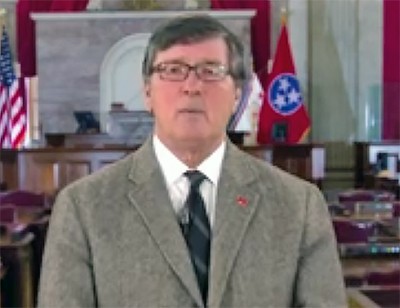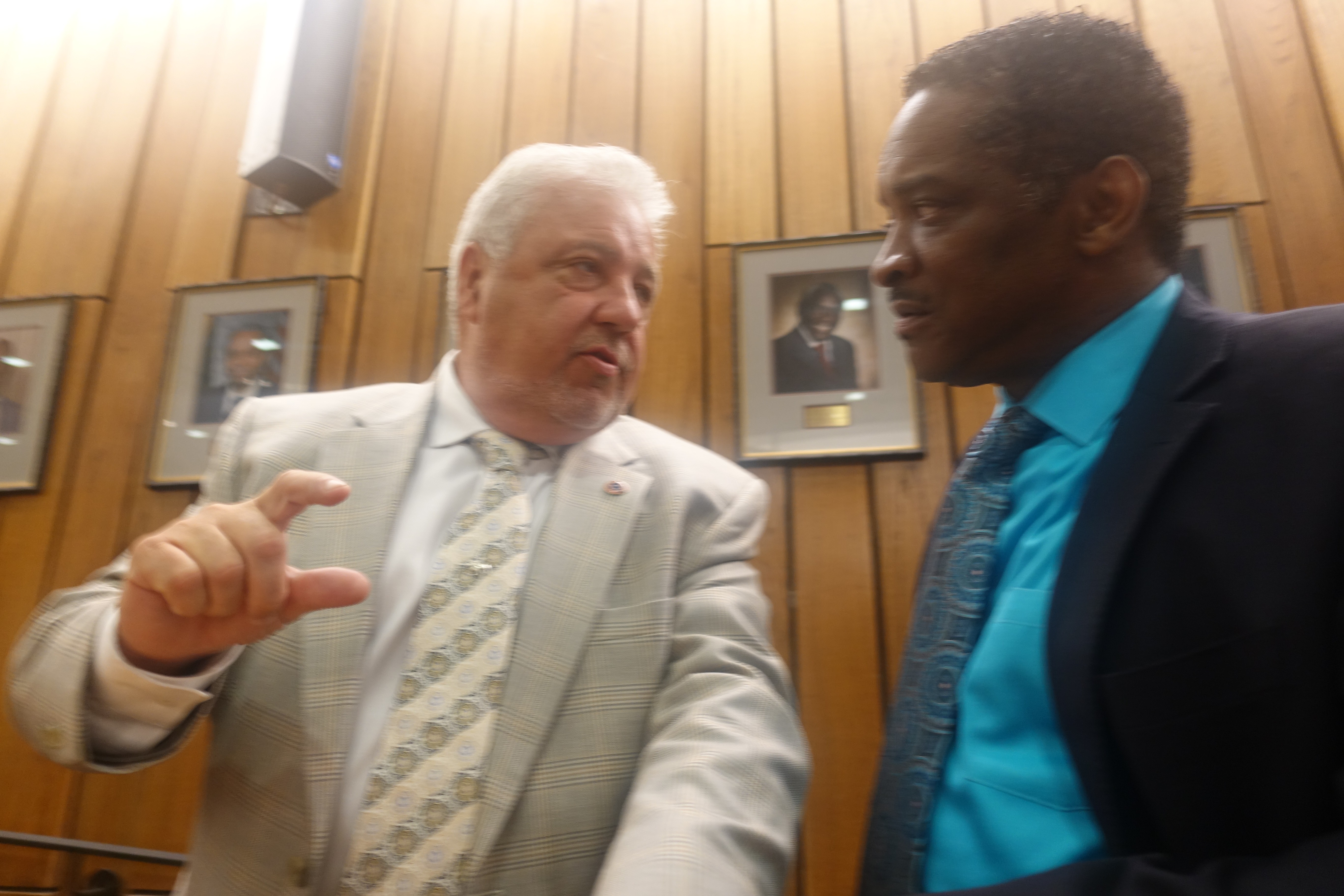In this week’s Viewpoint , Tom Humphrey, retired from the Knoxville News Sentinel, where he earned a reputation as the dean of Tennessee political writers, and now my colleague as a contributing editor of The Tennessee Journal, contributes some informed — and likely definitive — thoughts on the Republican candidates who will be vying in a 2018 gubernatorial contest which is about to get started in earnest.
As Humphrey points out, Tennessee is now about as deep-dyed red in its political sentiments as can be, and the GOP has a built-in advantage. But he also had some things to say about the two Democrats who have eyes on the Governor’s chair. For purely space reasons, these have been siphoned off from the Viewpoint and are presented here:

Karl Dean
Said Humphrey: “On the Democratic side, the minority party has a credible candidate in former Nashville Mayor Karl Dean, and his credentials were enhanced by taking in $1.2 million in contributions during four months of campaigning. He paid $36,000 for a poll out of his own pocket and donated $7,000, but the rest came from others. Though he’s declared a willingness to self-fund with big bucks, it’s doubtful he could match the financial endowments of Republicans Diane Black, Randy Boyd, or Bill Lee in a general election.
“State House Minority Leader Craig Fitzhugh, D-Ripley, who is quite popular and respected among those who know him, is still toying with a run against Dean in the primary. And some Democrats are unhappy with Dean’s support of charter schools as mayor. But Fitzhugh is not well known outside the legislative arena, is not rich enough for major self-financing, and probably cannot raise a lot of money. (Just $12,076 in his House campaign account July 1st.)

State Rep. Craig Fitzhugh
“So Dean will likely be facing one of the Republicans in November 2018. Democrats, of course, are wishing and hoping that President Trump will have become unpopular enough by then to change the current GOP inclinations of Tennessee voters. But it doesn’t look that way today.”
Friend Tom (whose track record in making predictions is impeccable) could be right, though Dean, who spent two days in Memphis last week reinforcing old connections and making new ones, would obviously disagree.
As the ex-Nashville mayor, a self-described “moderate” who sees health care as next year’s dominant issue, noted to the Flyer, there has been a gubernatorial pendulum swing, back and forth between Democrats and Republicans at eight-year (two-term) intervals, since the 1970s. On that calendar, it’s time again for a Democrat, and, like Dean, the last two elected governors — Democrat Phil Bredesen of Nashville and Republican Bill Haslam of Knoxville — had previously been mayors.
Humphrey points out in his Viewpoint that West Tennessee was left without a native-son gubernatorial hopeful, following last week’s presidential nomination to a federal judgeship of state Senate Majority Leader Mark Norris of Collierville, who had long been a potential GOP candidate.
That would seem to open the way to a race by Democrat Fitzhugh, a Ripley banker and an able and experienced legislative leader who, if he could get by Dean in a primary, has a combination of down-home likability and Main Street smarts that could possibly reawaken some residual Democratic sentiment in this part of the state, which until very recently produced the small-town and rural Democrats who basically ran the General Assembly.
• It was almost like a scripted TV show, with some of the lines improvised around agreed-upon themes but with the resolution of the drama known in advance.
This was the strangely harmonious meeting, Monday, of the Shelby County Commission, coming in the wake of a disputatious seven-hour marathon session a week ago, followed by a committee meeting two days later which appeared to further unravel whatever consensus had seemed to exist on the matters of a budget and a tax rate for fiscal 2017-18.
Instead of the hotly argued either/or positions of last week’s amorphous scramble, the commission Monday meeting followed a neatly Aristotelian formula of beginning-middle-end, starting with a proposal by Republican member Terry Roland of Millington to modestly amend the county budget and establish a $4.11 tax rate that would translate into a two-cent decrease for county taxpayers.
The provisional budget previously cobbled together by the commission had called for county employees to get a pay raise of two percent. Roland’s scenario envisioned an additional one-percent raise. As formally presented later by Democrat Willie Brooks, that would add $2.6 million in expenditures, the rough equivalent of a cent’s worth on the tax rate.
 JB
JB
Commissioners Terry Roland and Eddie Jones
The commission’s GOP members had been vociferous last week on behalf of a $4.10 tax rate, and, though Republican David Reaves of Bartlett made a brief argument for that rate on Monday, he would soon enough join his party mates in acceptance of the $4.11 rate. Democrat Eddie Jones, who with other Democrats had voted last Wednesday for a $4.13 tax rate, now announced that he had discovered from talking to “constituents” that they, too, would appreciate a tax cut.
With the sole exception of Walter Bailey, who, invoking the need for “services” to combat poverty, held out for $4.13, the other Democrats — including Justin Ford, a frequent fellow traveler with the GOP who had been absent last week — quickly fell in line, and that was that.
As commission vice chair Heidi Shafer said, in gaveling a quick adjournment to the meeting, “I appreciate a commission that knows what it wants to do.” Shafer didn’t wink, but it seemed clear enough that the body’s members — either through alchemy or advance understanding — had indeed known what they wanted to do, possibly even to the point of allowing a pro forma disagreement from Bailey.
For procedural reasons, one more vote will have to be taken on the tax rate at a special called meeting on Wednesday. But, as Shafer also cautioned her colleagues, “Get here early. I don’t think that meeting will last very long.”